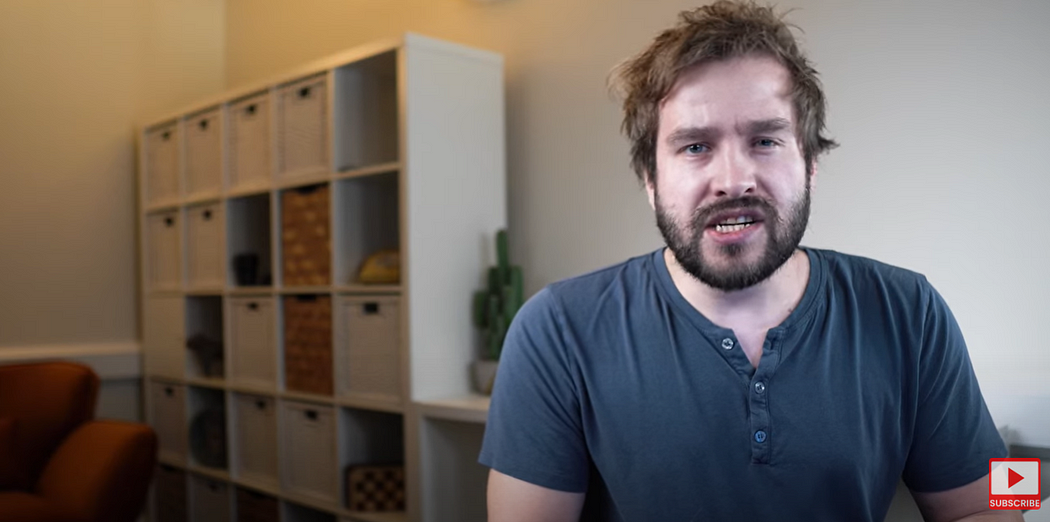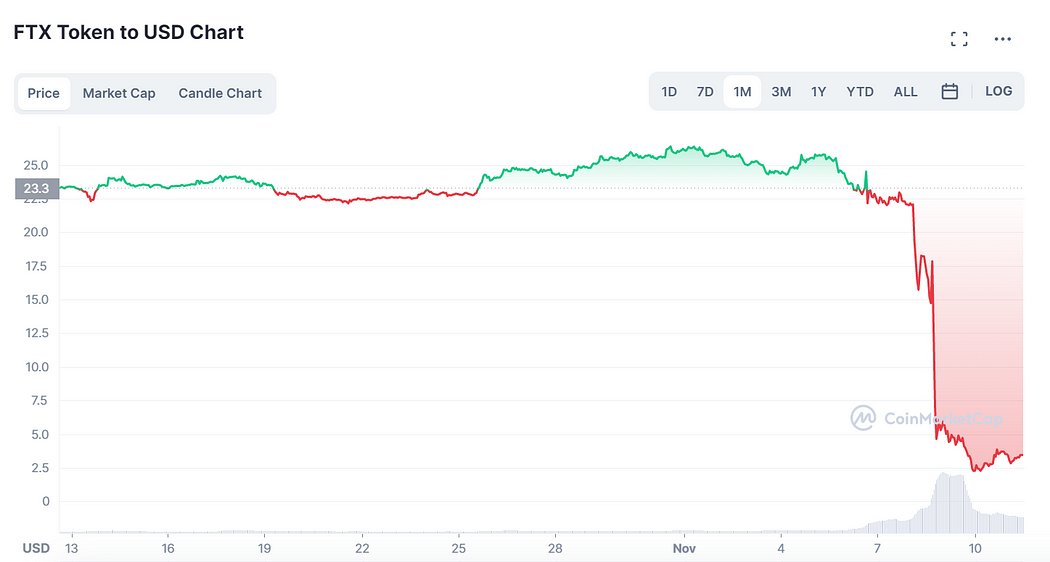Last night, Sasha Yanshin, an upcoming Finance YouTuber with a nose for bullsh*t, released a video on the collapse of the FTX cryptocurrency exchange. This company was dubbed the “second largest crypto exchange in the world” and its fall from grace is one of the most monumental moments in crypto since Mt Gov fell.

Using some choice language that is necessary for his video, but not for publication here, Sasha goes on to explain the fallout of the “great unwinding”. Another death spiral in the cryptocurrency market, just what we needed! Sasha even goes as far as to call the whole thing a Ponzi scheme, since it was essentially customer deposits that kept the exchange afloat (and a lack of them that was its downfall).
Where his comments get interesting, are the names he calls out. For too long the Youtube finance community has been able to get away with thinly disguised pump and dumps, and Sasha says as much. He named Graham Stephan, “Meet Kevin”, Andre Jeikh and anyone else who has been taking large sponsoring money from FTX in the last year.
Their silence since the video has been deafening, (since writing this Stephan has released a video, but without an apology attached to it). These large Youtubers have taken large sums of money from the company, and still have not apologized for misleading their audience; the very audience that keeps them extremely comfortable (Stephan makes over $ 4 million a year from YouTube alone).
If you’ve missed the entire drama, below is the story so far:
The CEO of FTX is a guy called Sam Bankman-Fried. He graduated with a physics degree from MIT in 2014, and then worked for three years as an intern and then a junior trader at a trading firm called Jane Street Capital.
After a few years on Wall Street, he went and set up a company called Alameda Research, a hedge fund, and FTX a crypto trading platform. And then miraculously, his companies went from zero to apparently owning many billions of dollars in assets in just three years.
The pieces of the pie did not seem to add up, but the questions weren’t asked as this is not a unique story in crypto. Riches can be made overnight, especially for someone deeply involved in finance. He was dubbed a “whizz kid” rather than a fraud. The line between the two is often blurred.
In his Video, Yanshin goes on to explain the phenomena that used to be called a “get rich quick scheme” and is now called an “invest in a crypto bro scheme”. One somehow seems more legitimate than the other, when it’s simply a rebrand. It starts with creating a worthless token attached to some long-term vision, promoting this to all your investors who want to get rich, and then dumping all these coins back on these gullible folks, propped up by the likes of Graham Stephan and co.
In this instance, they forgot to dump. Bankman-Fried simply did not foresee a day like today, and like Icarus had his wings burned. He kept most of his tokens invested, which made the rise, and the fall, even more dramatic. The longer the pump the bigger the dump.
A few days ago, Coindesk released a report saying Almeda’s research had $14.5b in assets under management. However, it turned out this was a blend of their worthless coin, customer deposits, and other microcap coins with no liquidity. To make matters even worse, somehow they had managed to secure loans of up to $8b, meaning they are now in a world of trouble.
Adding leverage into this mix was the oil onto the fire that made everything 10x worse. Once everyone realized the game was up, they all headed for the door, now releasing that there is simply not enough liquidity to sell their tokens at all. FTX Coin Price is down from $25 to just $3.44 in a matter of days, with most of the bleeding stopped by a freeze on withdrawals.

Yanshin closes out the video by aiming for the Finfluencers on YouTube. FTX has been sponsoring Graham Stephan’s videos and podcasts for many months, and he happily took that money without questioning how it was being made. If he is a finance genius, he could’ve worked it out pretty quickly. So either he didn’t do any research before promoting something, or he knew and just didn’t care about any of his subscribers, either is pretty damning.
What do you think, should those that promote such companies be held accountable? In what format should this take? If it were a “traditional” Ponzi scheme they would be brought into the fold and legal action might well be taken.
I feel this one may start some debate, do feel free to get involved in the comments below!
